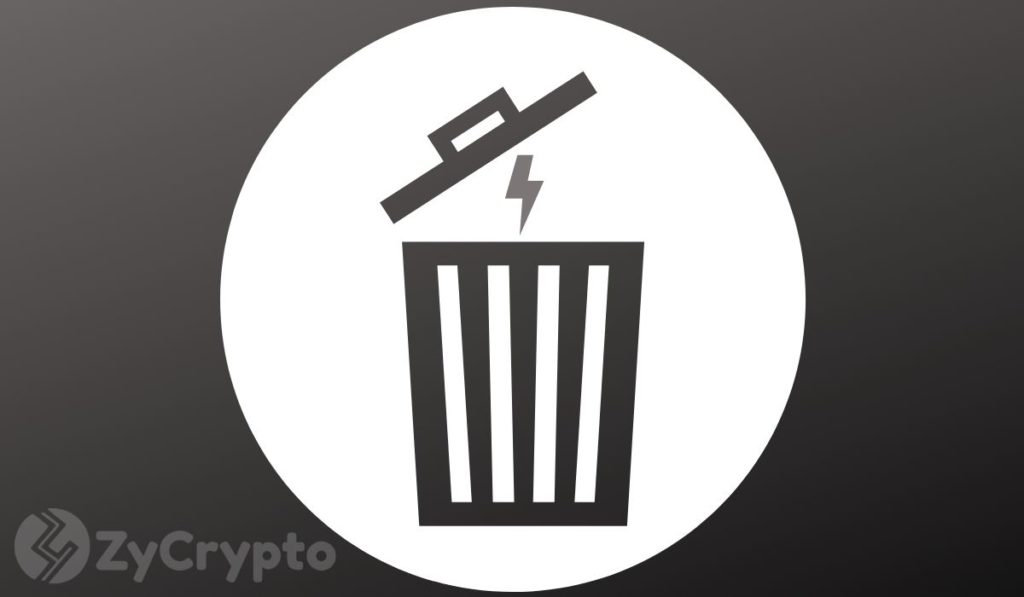
2021-9-22 22:09 |
"Bitcoin Net Zero" explained that Bitcoin's energy usage has to be seen in the context of its merits and why the currency is a unique innovation to humanity.
NYDIG published today "Bitcoin Net Zero," a 70-page document that evaluated Bitcoin's energy consumption in the context of its role in society. The paper, co-authored by Nic Carter, general partner of Castle Island Ventures, and Ross Stevens, founder and executive chairman of NYDIG, delved into the breakthrough technology's nuances. It dealt with the benefits Bitcoin brings to society, why energy is a requirement and compared Bitcoin to similar innovations that also improve citizens' quality of life around the world. Here you will find a summary of the main points.
The authors shared what Bitcoin's current energy used is like and how it may look in the future. Additionally, the report explained the role energy plays in human flourishing, what correlation there is between energy consumption and human development, as well as showing how the world's energy grid will evolve in the next few decades.
"We estimate that Bitcoin consumed 62 TWh of electricity in 2020, which resulted in 33 million tonnes of carbon dioxide emissions, insignificant in global terms, representing just 0.04 percent of global primary energy consumption and 0.1 percent of global carbon emissions," the report said. "Bitcoin's electricity consumption is also low compared to other energy-intensive modern conveniences, such as domestic refrigeration (630 TWh) and domestic tumble dryers (108 TWh)."
The report analyzed Bitcoin's current energy expenditure and projected how it could evolve in this decade based on the likely price appreciation of bitcoin. NYDIG and Nic Carter explained that the price of one BTC in U.S. dollars is significant for energy consumption because it is directly correlated with miners' willingness to invest more into equipment and machinery. The premise is, the higher the bitcoin price, the more energy miners are incentivized to expend in their activities; because the bigger the expenditure of energy, the more likely they are to mine a block and receive a reward in bitcoin.
Considering the price of Bitcoin would reach only $60,000 by 2030, the report estimated electricity consumption and associated emissions would peak at around 120 terawatts hours (TWh) and 47 metric tons of carbon dioxide (MtCO2) in 2024, "before declining rapidly." It is estimated that emissions would fall below a net-zero pathway by 2028 — a line reduction in carbon emissions from 2020 levels to zero by 2050.
In a more optimistic scenario, in which Bitcoin would climb over 45 times its average 2020 price to reach $490,000 by 2030, its electricity consumption would peak in 2027 at 11 times its 2020 level, and carbon emissions would be seven times higher than their 2020 level. The report then estimated that emissions would fall rapidly after 2027, reaching 22 MtCO2 by 2040. "Even at the peak of the high price scenario, Bitcoin's emissions only account for 0.9 percent of global carbon emissions."
Regardless of energy consumption, however, NYDIG and Nic Carter advocate that the value Bitcoin can provide to billions of people worldwide by "providing a sound new monetary system, independent of government...far outweighs its associated energy requirements." Additionally, the report highlights how bitcoin miners are increasingly focusing on reducing their carbon emissions, seeking renewable energy, and using otherwise wasted energy such as curtailed hydropower and flared gas. "Over the longer term, the intensity of Bitcoin's carbon emissions (and with it Bitcoin's absolute carbon emissions) will decline, as the development of renewables continues and countries strive to decarbonize their electricity grids."
The Significance Of Bitcoin To Society TodayThe primary value provided by Bitcoin today relates to shielding people from the harms caused by monetary instability and currency collapse — something far more common than what would be believed at first. Recent examples include Argentina in 2001, Turkey in 2018, Lebanon in 2019, and Cuba and Nigeria in 2021, all of which disproportionately affected the middle and lower classes, who usually do not have the means to be sovereign over their assets and move them abroad when needed.
"The destruction of a nation's savings through uncontrolled hyperinflation is a modern phenomenon. Of course, hyperinflation is not the only form of monetary collapse. Monetary policy, if misused, can be a powerful tool for confiscation, effectively enabling an unconsented redistribution of societal resources," the report said. "All too often, monetary reforms take citizens by surprise and strip them of their purchasing power. Because citizens tend to save either directly or indirectly through instruments tied to government debt and the currency, sharp changes in monetary direction often come at the expense of savers."
While people's savings have for the past century been susceptible to the indirect effects of central bank monetary policies, today, they have more democratic access to sound money outside of the influence of central banks. Bitcoin brings economic sovereignty to anyone that adopts it, shielding regular folks from the whims of regulators and monetary policies' chiefs worldwide. Central banks benefit insiders only, while Bitcoin helps everyone.
Along those lines, the report asserts that Bitcoin's energy consumption must be seen in the context of its merits. Technologies with an elevated energy cost and carbon footprint have nonetheless been adopted by society because they increase the quality of life. The same way one wouldn't enjoy winter without a heater in their home, millions worldwide wouldn't like living without Bitcoin and having to resort to government-influenced assets.
"Aside from being a means to transport wealth through time and space via a system with predictable rules and sound assurances based on cryptography, Bitcoin also facilitates the final settlement of value with no counterparty risk. Bitcoin settles billions of dollars' worth of transactions every day without meaningful interruption or downtime, granting users predictable, strong finality within a few blocks," the report said.
Final settlement of value with no counterparty risk and no downtime is possible because of Bitcoin's proof of work (PoW) system, a setting with no coordinator or leader. "Alternative systems that appear less costly are based on centralized models with a handful of ultimate arbiters who determine the valid transactional history," the report explained. "It is because Bitcoin strives to establish a neutral, apolitical, and unopinionated transactional medium that it must retain an open setting, in which any miner can leave and join at their pleasure. Proof of work permits this."
Consequently, mainstream media's far too common reports on Bitcoin energy consumption that dismiss the inherent benefits the technology provides to millions around the world and why it is necessary are not only short-sighted but cannot be taken seriously. More often than not, such reports also carry a heavy financial privilege bias.
Energy Consumption And Civilizational ProgressHistorically, humanity's relationship with energy has been one of capturing and exploring it to enable societal flourishing, poverty reduction, and improved quality of life worldwide. Industrial processes, electrification, industrialized agriculture, and mechanized transportation have been central to the growth of humanity and enabled continuous developments, ultimately allowing more outstanding inventions and enhancements to life on Earth.
The more energy a country consumes, the more developed it is and the higher its gross domestic product (GDP). Source: NYDIG"Equipping citizens with abundant energy is essential to attaining a high standard of living. Indeed, because abundant energy grants us so many luxuries, society rarely engages in public debate about the social merit of these technologies," NYDIG said. "The social contract that has been sketched out in the West holds that households and industries freely consume energy that they have paid for, while policymakers regulate the grid and mitigate its externalities."
The electricity grid has shifted towards more environmentally conscious sources lately, which is likely to continue. The progress of civilization will lead to discovering new and better means of producing energy in a sustainable manner.
"Just as gasoline and combustion engines made car travel possible, and efficient batteries enabled personal computation and constant communication, new means of energy production and storage will continue to move civilization forward," the report said. "Our challenge is to meet society's ever-increasing demand for energy in a manner consistent with any relevant planetary constraints. The alternatives – regressing to a pre-industrial state or barring the global south from industrializing – are not practical or moral."
Energy needs to be seen as for what it is, a vital and central aspect of human development and flourishing. The progress of society depends on energy, especially in the interconnected world of today. The key is to work for enhancing the power grid and investing in seeking solutions that enable such flourishing to occur without compromising the planet's future conditions.
"Bitcoin...offers savers the chance to control their wealth directly in a sound, non-state monetary system, bound by nondiscretionary rules," the report asserted. "Like all breakthrough technologies, the full impact of Bitcoin's merits and capabilities has not been immediately appreciated by its entire addressable market, though it is following a rapid adoption curve. Because Bitcoin offers a unique monetary medium with a clearly established value proposition, it can be situated among other energy-intensive innovations that improve the quality of our lives."
Bitcoin's Energy ConsumptionThe report estimated, using a bottom-up approach based on network hashrate and machine efficiency, that Bitcoin mining consumed 62 TWh of electricity in 2020 — an energy-intensive activity by design to provide security to the network and enable its value proposition. NYDIG explained that carbon emissions, on the other hand, are primarily driven by the carbon intensity of miners' electricity mix and their energy consumption. The report estimated that the industry led to total emissions of 33 million MtCO2 in 2020.
However, NYDIG found that Bitcoin's energy consumption and carbon emissions are not significant globally, even though the technology has a unique value proposition and the clear potential to improve the quality of life worldwide. The report crunched the numbers to find that, in 2020, Bitcoin represented only 0.04 percent of global primary energy consumption, 0,2 percent of global electricity generation, and 0.1 percent of global carbon emissions.
"Bitcoin's absolute carbon emissions are low compared both to other innovations that are energy intensive, such as aviation transport and air conditioning, and to major mined products," the report concluded.
Bitcoin consumes much less energy than other technologies that improve human quality of life. Source: NYDIG. Source: NYDIG.Compare that with the asymmetric benefits Bitcoin has been providing for populations in developing countries, and it becomes clear how uninformed and unfair mainstream media's remarks on Bitcoin energy consumption are. Furthermore, the future trend for increased usage of renewable energy worldwide will also positively affect Bitcoin.
"Renewables are expected to grow rapidly in the future, as their costs continue to decline, and environmental concerns persist. This trend may ultimately lead to the decarbonization of electricity grids," the report said. "Further growth in renewables would be required to achieve a 'net-zero' world, in which there is a balance between the amount of carbon dioxide emitted and the amount removed from the atmosphere."
The IEA 2020 Sustainable Development Scenario sees a trend of phasing out carbon-intensive energy sources in favor of renewables in the coming decades. Source: NYDIG.However, given the seasonality of renewable energy sources, fossil fuels are likely to keep playing an important role to ensure that the supply of electricity can meet demand. Wind, for instance, relies on the wind blowing, similar to how solar requires the sun to shine. For those reasons, at times when the wind does not blow or the sun does not shine, fossil fuels will be needed to fulfill demand.
Bitcoin's energy usage and the associated carbon emissions aren't an outlier in the grand scheme of electricity grids worldwide, but a product of them instead. Therefore, Bitcoin's future energy consumption and carbon footprint are set to be positively impacted by the overall trend of increasing renewable energy sources and reducing fossil fuels.
"Bitcoin's future carbon emissions have been estimated using values for the future carbon intensity of grids and a baseline geographic distribution of hashrate. In all price scenarios, Bitcoin's carbon emissions increase and peak within the next decade, before declining substantially due to grid decarbonization," the report said. "Bitcoin's carbon emissions will always be a small proportion of global emissions. Even at the peak of the high price scenario, Bitcoin's emissions will only account for 0.9 percent of global carbon emissions."
Bitcoin's Benefits As An Innovative Technology Far Outweigh Its Energy RequirementsThe positive set of changes Bitcoin has the potential to provide the world population with is greatly underestimated. The distributed digital monetary system can improve the quality of life for all human beings on the planet, empowering people worldwide to regain control of their finances and save in government-agnostic sound money.
However, since not many people understand such potential, mainstream narratives mainly dismiss the upsides while framing natural necessities such as energy consumption negatively. Bitcoin is another breakthrough invention that can enhance society and help it move forward, and its energy consumption is a natural side-effect. Nonetheless, when compared with similar life-enhancing technologies, Bitcoin's energy costs are negligible and its carbon footprint is but a small fraction of the total emissions in the world.
"Overall, the prospects for the decarbonization of Bitcoin mining over the coming decades are quite promising," the report said. "Meanwhile, against a backdrop of increasing financial surveillance and global monetary instability, the case for Bitcoin as a monetary safe haven and neutral settlement network grows ever stronger."
Even when probable upsides and downsides of Bitcoin are accounted for, the technology's asymmetric potential is unique; a once-in-a-generation opportunity to fix the money and fix the world.
origin »Bitcoin price in Telegram @btc_price_every_hour
Bitcoin (BTC) на Currencies.ru
|
|























